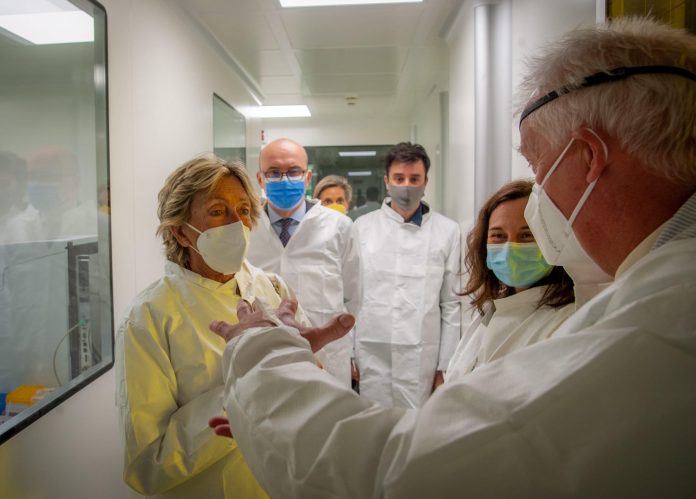by In Trieste
A pilot study on cost-effective SARS-CoV-2 testing, coordinated by ICGEB, has been successfully extended to the second phase to countries in Africa
Covid-19 testing is one of the pillars to contain the pandemic. Most testing techniques however, are expensive and require laboratory settings that are scarcely available in low- and middle-income countries (LMICs). The RT-LAMP assay and colorimetric detection developed by New England Biolabs® (NEB®) represents a promising alternative, but limited testing was available. ICGEB performed a successful pilot study in four countries in Africa that confirmed the efficacy of this novel method in low resource settings. Thanks to the fruitful collaboration with NEB and funding from the Bill & Melinda Gates Foundation, ICGEB will now extend the project to five more countries in Africa, confirming its central role in helping LMICs obtain diagnostics.
The pilot study, coordinated by ICGEB, involved 1,657 individuals across four African countries – Nigeria, Ethiopia, Cameroon, Kenya and Italy. The colorimetric LAMP-based kit developed by NEB can give results in low resource community and field settings in approximately 30 minutes. The aim of the pilot study was to assess the efficacy of this novel method in diverse African laboratories. According to the results of the project the RT-LAMP assay is a formidable alternative to RT-qPCR, the current standard for SARS-CoV-2 diagnosis. Moreover, the technology was successfully implemented by local institutions that carried out the test in the field coordinated by ICGEB. These exciting results have led the project to the next step involving more countries using this kit through effective technology transfer. The results of the pilot study were recently published in the journal EClinicalMedicine of The Lancet.
“We are excited by our results for two reasons” states Lawrence Banks, ICGEB Director-General, “First, because of the success of the project in coordinating and carrying out diagnostics in remote and distant areas, and secondly, because this has created a test-bed for needs assessment and a long-term channel for providing technical assistance in the field, while increasing local capability”.
The ICGEB pilot study, performed during the period September 2020 – May 2021, expanded the methods available for detecting SARS-CoV-2 in resource-limited settings. It evaluated the intrinsic diagnostic performance of RT-LAMP (sensitivity, specificity) and extrinsic (positive and negative predictive values) characteristics according to SARS-CoV-2 viral load estimates provided by the conventional RT-qPCR in four LMICs of Sub-Saharan Africa.
The coronavirus disease 2019 (COVID-19) pandemic is a global threat that entails tremendous opportunities to accelerate research and development, with implications beyond this crisis that could further impact the management of infectious diseases. It is critical that new developments are framed not to widen the technological gap between countries, as a pandemic needs to be controlled locally in order to achieve global goals. These are the values that shaped the collaboration between ICGEB and NEB, and on which the project will move forward.
The second phase of the project will significantly contribute to enhancing the detection capacity of more reference laboratories in the target countries to respond to SARS-CoV-2, through making available a simpler technology for rapid viral detection, direct scientific training, and technical assistance from qualified experts. This will produce a long-term impact as acquired resources, skills and knowledge will increase the laboratory diagnostic capacities of the beneficiaries and their preparedness for current and future pandemics.
Article: Baba, M.M., Bitew, M., Fockam, J. et al. Diagnostic performance of a colorimetric RT LAMP for the identification of SARS-CoV-2: a multicentre prospective clinical evaluation in sub-Saharan Africa. https://www.sciencedirect.com/science/article/pii/S2589537021003813





























